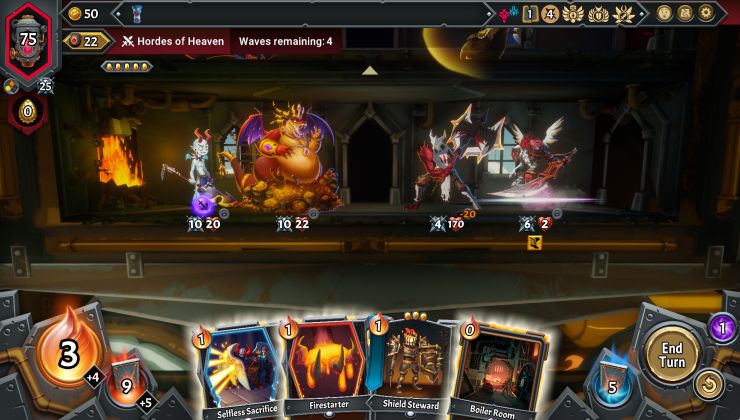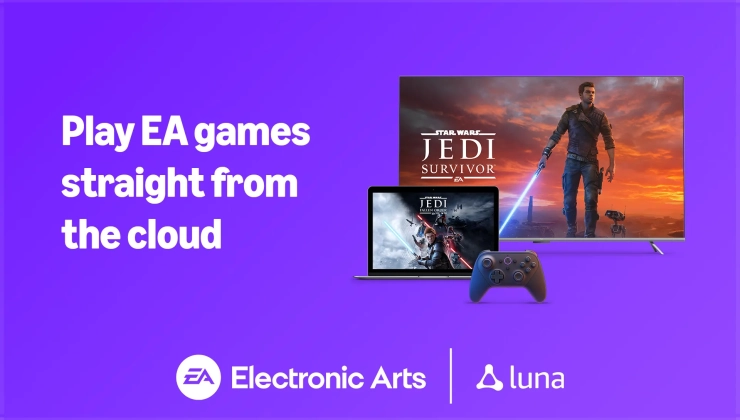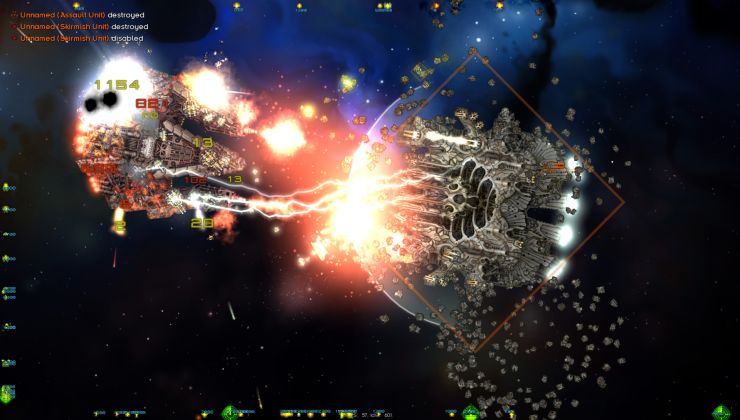As you might have heard by now, Canonical has made the decision to drop 32bit support from Ubuntu 19.10 onwards.
Writing on the mailing list, as well as this post on Ubuntu's Community Hub, Canonical gave a reminder that the decision isn't coming without warning. It was proposed last year and it was followed up with another post detailing a final decision to be made in the middle of 2019. So here we are, the decision seems to have been made.
The problem isn't hardware, as likely around 99% of people nowadays have a 64bit capable computer. Going by our own statistics, from what 2,254 users told us only 4 are using a 32bit Linux distribution. The issue then, is mainly software and libraries needed to actually run 32bit applications. This is where it sounds like there's going to be plenty of teething issues, with a number of people not too happy about the decision.
Steam, for example, is one such application along with plenty of 32bit games that will likely never get updated, although Canonical did say they're "in discussions" with Valve about it. There's also GOG, Humble Store and itch.io which all provide a number of direct-download 32bit games, which do not supply the required 32bit libraries to run. It doesn't sound like they have been given any thought (at least they haven't been mentioned).
Another of the major problems being Wine, with a discussion now happening on their mailing list. The discussion doesn't seem to be too positive, with developer Henri Verbeet even saying "I think not building packages for Ubuntu 19.10 would be the only practical option.", although Andrew Eikum's idea of using the Steam Runtime could be an interesting way around it.
What are your thoughts?
For now I am going to recommend Manjaro (rolling) and LMDE (LTS)
I think VALVE should create a desktop distro based on ARCH for a rolling release and/or one based on DEBIAN (LTS) to run alongside SteamOS
Just as Linux was reaching a tipping point we have had numerous hits to the face starting with EPIC games and its been downhill from there. I am beginning to think that Microsoft is involved here. Isn't it coincidental that as soon as Steamplay/Proton hits the ground running Canonical decide to drop 32bit breaking 80+% of software on Linux and also work with Microsoft to create WSL allowing Linux programs to run under Windows.
This not only cripples VALVE but Wine and Proton also.
Thoughts?
Ubuntu, though... So many cool distros out there. I no longer see Ubuntu any different than Apple or Microsoft, anymore.
https://appletoolbox.com/2019/06/macos-catalina-and-your-32-bit-apps
...Canonical decide to drop 32bit breaking 80+% of software on Linux...
Thoughts?
Thoughts? That you are slightly exaggerating? Apart from my (Steam-)games all my applications are 64bit anyway and my 4 Wine applications seem to work perfectly ok with wine64. If you count every game in my Steam library the percentage goes up considerably, but I suppose Steam might be just fine - after all Valve has shipped their own runtime environment for ages.
I personally do not think what does Apple is very relevant to Linux. And they have a long tradition of screwing their customers and trade partners.
I agree with this -- in the past few years Apple has perfected gratuitous obsolescence to an art form. About Canonical, though, the following comes to mind. It smacks of a conspiracy theory of course, but Canonical screwing over desktop users like this could well be the prelude to their acquisition by M$.
Last edited by walther von stolzing on 21 Jun 2019 at 2:24 pm UTC
... and my 4 Wine applications seem to work perfectly ok with wine64.
That doesn't mean they aren't 32 bit and use 32 bit libraries.
Edit: Just checking and it looks like most of those work fine. Hmm. Does anyone have any comments on the KDE Debian spin?
Running Debian with KDE for, dunno, two decades? Sure worth a try.
KDE on Stretch was broken due to a massive memory leak in ksmserver they never fixed. Now Buster is much more stable on KDE.
Didn't Valve select Debian for SteamOS? So Valve would simply swap Ubuntu with Debian as most recommended target. Quite natural to expect that.
They did this because Canonical has a shitty license policy.
... and my 4 Wine applications seem to work perfectly ok with wine64.
That doesn't mean they aren't 32 bit and use 32 bit libraries.
Navicat provides specific 32 bit and 64 bit downloads. Even if not - not everything is doom and gloom:
https://www.winehq.org/pipermail/wine-devel/2019-June/147898.html (Andrew Eikum of Codeweavers)
If they don't, then I have a suggestion for our packages: use the
Steam runtime. I see a lot of upsides: They've already solved this
problem; we don't need to re-invent this wheel. Ubuntu is already
working with them to support the use-case. The project is open-source,
well-funded, and has a clear motivation to continue being updated and
functional for the long-term. And people are already building and
running Wine in the runtime today.
We would need to build a couple more packages than we do now, but not
many. Based on the Proton build system, I think we would need to
build bison, FAudio, gstreamer (and all of its dependencies, notably
glib2), and vkd3d. Build those against the runtime, package and ship
the runtime itself, and I think we should be in good shape without
having to build and maintain a bunch of 32-bit packages ourselves.
Maybe but I think its more about not having another company control of the distribution they choose to base on where there also is a lot of branding, and maybe some software with problematic licenses involved, that would take a lot of effort to fork out of if a situation arise where they do not like the direction the distribution will take. A situation like this, not saying that Valve will not like how this will turn out. They might change SteamOS to use the same way to get the needed 32bit libraries as Ubuntu will get after all.Didn't Valve select Debian for SteamOS? So Valve would simply swap Ubuntu with Debian as most recommended target. Quite natural to expect that.
They did this because Canonical has a shitty license policy.
Even if not - not everything is doom and gloom:
https://www.winehq.org/pipermail/wine-devel/2019-June/147898.html (Andrew Eikum of Codeweavers)
That's obviously not the whole story. They're looking at minimum requirements to build wine. But let's say you want to run Overwatch on wine with it's braindead 32 bit b.net launcher, then you're looking at a fairly steep list of 32 bit dependencies that the wine team is not going to solve for you.
That said, even if Canonical won't reconsider, I think the packages will be built by others. Maybe they'll move from the base distribution to the "universe" or something like that, but that shouldn't really matter too much for most users.
The ability to run 32 bit programs will not go away, what will go away if this goes through is that the whole distribution (probably with some exceptions) is compiled to 32bit all the time.
This was the normal way to get 32 bit packages until now because it was convenient to use that since the 32bit distribution was there anyway. Now that there is no need for installing Ubuntu on 32bit processors, which most agree with, it is possible to look into other ways to provide those 32 bit libraries.
See the discussion at https://discourse.ubuntu.com/t/i386-architecture-will-be-dropped-starting-with-eoan-ubuntu-19-10/11263 where there are some proposals at the start but also more discussion.
What remains to be seen, and we should be sceptical there, is how that will turn out, and if it at the end will
* be a lot more complicated for users,
* buggy,
* same experience for users as today
* or even better as now.
I am using Ubuntu 19.04 now on my home desktop and home laptop where I game on some times (while my main gamerig is on SteamOS ) I will switch to another distribution if 19.10 will not be as least as good as 19.04 to game on.
19.04 is supported until January so that leaves some time, those on 18.04 have even more time before they have to find another if 19.10 and onwards turns out unacceptable.
I will install a 19.10 on a virtual machine for easy snapshotting and another install on dedicated partition for testing of how games will perform, and how easy or complicated and possibly buggy it will be too install them.
I am tired of that. Why does Canonical have this propensity of being an asshole to its users? When we most need proper desktop support, with the amount of influence they have, they do a backwards decision like this one? That's absurd.They want to be Apple.
Debian is a more solid base, where they don't just accept new technologies to go against the grain of everyone else.Didn't Valve select Debian for SteamOS? So Valve would simply swap Ubuntu with Debian as most recommended target. Quite natural to expect that.
They did this because Canonical has a shitty license policy.
Ubuntu has tried many times and failed to become a special snowflake among Linux distributions, I think they saying they're dropping 32bit library support is the next attempt at this. Just look at Unity, Mir, Upstart, etc.
I'm a huge supporter of Debian as a desktop / server, whatever.Sounds like a good system if you're still in the reformat-every-year-or-two mindset. That was really an XP era thing that I find pretty annoying these days. I don't like major upgrades, thus the move to a rolling release years ago. Theoretically never have to reinstall? "Sign me up," is what I thought.
It really goes like this, use stable with backports (namely kernel / nvidia driver, if you have such hardware, etc.) with the debian-multimedia repo, and you're pretty much set. Then you can wait about a year into stable, then switch to testing, since their release cycles seem to be about every 2 years. Just note that testing gets a bit unstable right after a release, and switch to stable at that point so the couple months of all the new crap coming from experimental and unstable don't break your system.
Coming from someone who has used it since the late 90s :)
Not saying you're doing it wrong, -- it's your system -- just commenting my preference.
Ha, what? No, I know how to fix sid when it goes sideways, and only time I reinstall (weirdly enough) is when I'm bored that my system works to well and I want to play with something else, which inevitably fails and I go back to Debian, which I can have set up exactly the way I want in like 20 minutes.
You don't format / re-install with Debian... really ever. When a new release comes out, you just dist-upgrade, maybe read the release notes and they'll tell you the major changes that you may have to do to keep things running. That's mostly for server stuff though (like there were some config changes going from apache 2.2 to 2.4). Desktop wise, just update away.
Also, I never reformat, I have that same /home partition for ages, with the exception of upgrading hard drives, which I dd my old drive, dd onto the new, and then resize :P Only time I've not done that is when a hard drive outright fails, then I just have the data copied over from the backups :)
But yes, personally I run Sid (so rolling release) I was just warning others that wish to do so that there are some gotchas right around release time in Debian, because the freeze lifts and all the new stuff starts hurdling down the hill.
Good example, currently Sid is frozen at Gnome 3.30, but 3.32 is in experimental for those who want to pick and chose things from there.
Steam Flatpak is running fine for me but I did not test many games, to be honest.
Lutris is on beta and depends on patches to [Freedesktop SDK](https://gitlab.com/freedesktop-sdk/freedesktop-sdk/issues/348), [Gnome Flatpak Runtime](https://gitlab.gnome.org/GNOME/gnome-build-meta/issues/168), and probably to Lutris itself.
So if/when all this comes together I don't think missing 32-bit packages will be so bad for Ubuntu and derivatives after all.
Last edited by FGarden on 21 Jun 2019 at 3:36 pm UTC
Perhaps because it's new and shiny (to me), but I recently left Debian and tried Suse tumbleweed (their rolling distro). I find it much easier to set up (great installer) and it feels much more polished. It has simple instructions to activate Nvidia drivers and is more up to date (bleeding edge) than Debian testing. The package manager is different and takes some getting used to, but it seems well thought out.
If your looking for something on the user friendly side, it might be worth a look.
While I had been aware of plans to stop the 32bit variants of the distribution, I never would have imagined that they'd also remove 32bit support from the 64bit distro at this point in time.
Not sure what I'll do now. Back to Debian? A colleague suggested Manjaro, but after a quick search it appears as if there aren't any ready-made wine-devel packages. Don't really want to be limited to wine-stable or compile anything but 64bit wine myself.
Or I'll just sit it out and hope that somebody provides a PPA for the essential 32bit stuff. Will not upgrade before 20.04.1 LTS is out anyway.
That said, as a developer (and even as a user), I do not understand how in this day and age we're held back by legacy 32bit stuff. It's understandable that support is desirable when looking at games from 15 years ago, but why aren't things like Steam or GOG Galaxy or modern software install packages 64bit these days? The one bit that wasn't 64bit on my Linux system (before I ditched Windows as gaming OS in 2015) were the shoddy Canon printer drivers, and even then it irked me that I had to have a host of 32bit libs installed on top of the regular 64bit stuff. Maybe it's about time for some of the developers out there to move with the times! :-).
For those looking to jump off Ubuntu, Debian testing is nice. I used it for the past 10 years.Maybe it's because I've been using it for so damned long, but Debian to me is VERY easy to set up. The only things out of the box I do really is this;
Perhaps because it's new and shiny (to me), but I recently left Debian and tried Suse tumbleweed (their rolling distro). I find it much easier to set up (great installer) and it feels much more polished. It has simple instructions to activate Nvidia drivers and is more up to date (bleeding edge) than Debian testing. The package manager is different and takes some getting used to, but it seems well thought out.
If your looking for something on the user friendly side, it might be worth a look.
1) add user to sudo (not really needed, but some may like it this way.)
2) install nvidia drivers 'sudo apt install nvidia-driver'
3) enable i386 packages 'sudo dpkg --add-architecture i386' (something apparently Ubuntu is going to kill)
4) 'sudo apt install plymouth-themes'
5) 'sudo plymouth-set-default-theme futureprototype' (assuming you're running buster/testing)
6) edit /etc/default/grub to add 'splash' next to 'quiet'
7) 'sudo update-grub2'
8) reboot.
Only thing Debian could use work on for the install, is probably the partitioning. Though they are the one distribution who I think just letting it choose actually works well (every other distro I've tried does something ridiculous and gives like 100GB to root, and still uses the 'double the ram for swap' idea that went away as soon as we went over 1gb of ram..












 How to set, change and reset your SteamOS / Steam Deck desktop sudo password
How to set, change and reset your SteamOS / Steam Deck desktop sudo password How to set up Decky Loader on Steam Deck / SteamOS for easy plugins
How to set up Decky Loader on Steam Deck / SteamOS for easy plugins
See more from me